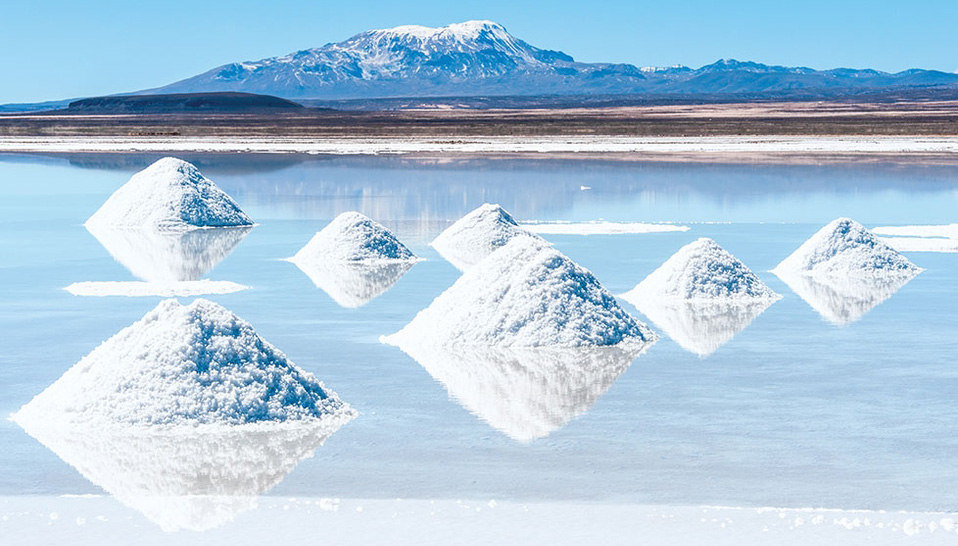Efforts by the government of Luis Arce to industrialize lithium have produced initial results, putting Bolivia on the world map of lithium suppliers.
According to a report by a private institute, nearly half of the amount mined has been exported to Russia.
The Bolivian Institute of Foreign Trade (IBCE) reported that the country finally made it to the top 10 lithium exporters.
The 2021 data reflects the efforts of Luis Arce’s government to promote the industrialization of this precious metal, whose largest reserves are found in the area.
According to the forecasts, the Plurinational State will increase its export volume and revenue from sales in the coming years.

The IBCE report highlights that in 2021 Bolivia exported 1,019 tons of lithium carbonate produced at the pilot plant in the Uyuni salt flats in the department of Potosí.
Forty-four percent went to Russia, 40 percent to China, and the remaining 16 percent ended up in the United States.
TOP 10 LITHIUM EXPORTERS
According to the IBCE report, these are the largest exporters of lithium carbonate in 2021 (in millions of dollars):
- Chile: US$883 million.
- China: 99 million.
- Netherlands: 54 million.
- South Korea: 46 million.
- Belgium: 31 million.
- Germany: 22 million.
- United States: 18 million.
- United Kingdom: 16 million.
- France: 11 million.
- Bolivia: 10 million.
Analyst Gabriel Campero Nava told Sputnik that the price of lithium has increased by more than 400% in one year.
This increase is reflected in the report’s data: by June 2022, Bolivia had extracted 442 tons of lithium and spent US$23.5 million on it.
“This situation is very favorable. The price of lithium has quadrupled since June last year and is at US$60,000 to US$70,000 per ton,” he told Sputnik.
He added, “This is logically sustainable over time, as there is greater international demand for electric cars, which help reduce the carbon footprint.
Bolivia has the largest lithium reserves in the world, with 21 million tons of lithium in Uyuni.
YLB is currently conducting studies in other salt lakes on the Altiplano, so more lithium is needed to discover.
Bolivian production in 2021 had three destinations: Russia, China, and the United States. How can this figure be read in a global context?
“It is a consequence of Bolivia’s sovereign policy. For example, transnational companies in Argentina have refused to export lithium carbonate to Russia.
They obey the policies of NATO (North Atlantic Treaty Organization), Europe or whomever, but not Argentina,” Cardona explained.
For the Codepanal leader, Bolivia should sell lithium in future markets. This way, it could already be paid to improve its production capacity and comply with contracts.
“China, Russia, Korea, or any other country that wants to join could get part of the 200,000 tons of lithium carbonate that will be produced by 2030,” Cardona said.
For the engineer, it is also essential to think about the Latin American market: a fleet with millions of vehicles equipped with lithium batteries or converting their engines to run on electricity.
The fact that the U.S. retains a small portion of Bolivia’s lithium may indicate that “the United States no longer has the same influence in the international situation as it once did in a unipolar world. It no longer controls it,” Campero said.
However, he pointed out that the U.S. is benefiting greatly from the conflict in Ukraine by selling its allies 40 percent more expensive energy and supplying tons of weapons to the government of Volodymir Zelensky.
With information from Sputnik

